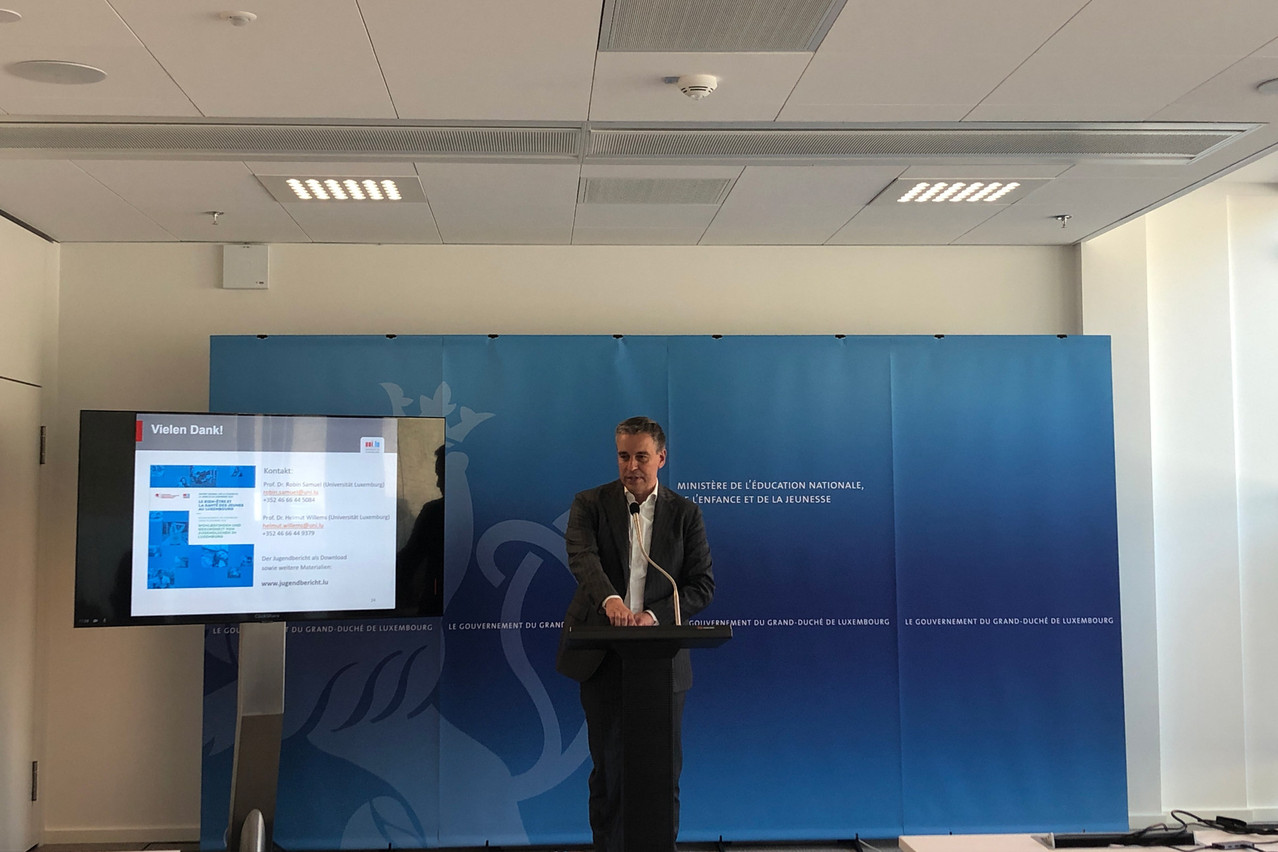How are young people doing? Every five years since 2010, the Ministry of Youth takes their pulse via its "National Report on the Situation of Youth". The third edition was presented by Minister (DP) at a press conference on Wednesday 16 June. The research was carried out by the University of Luxembourg over the past three years. 14,000 young people aged 12 to 29 were surveyed, out of a population of 140,000, a figure considered significant by Professor Robin Samuel.
But we must not overlook the fact that there are also some target groups who have real problems. People at a very young age who are less optimistic, who have problems at school and feel less well. Very often, one leads to the other. A young person who does not feel comfortable may be failing at school, and a young person who is failing at school does not feel comfortable.
We also found that, very often, it is related to the family and socio-economic situation of the family. So we need to formulate global policy responses. Not too focused only on young people, but maybe also on the whole family, the social situation of the family.
CM: We are working on networking between the different support services. For example, the school's psychosocial support service and the family and youth support service of the National Office for Children. There are plans to bring the two institutions closer together, with a National Children's Office employee being integrated into the 15 regional directorates of basic education. This is one of the very concrete possibilities. There are others that will be discussed during the major debate on this report on youth, which will take place in the coming months.
It is a process of exchange that will take place in the Chamber of Deputies, in an interministerial committee. Because we work in the field of youth as a ministry, but almost all ministries also have aspects that directly concern young people.
Young people must also be allowed to participate. Consultation formulas will approach them, as well as the actors who work with them. For example, in youth centres and associations in the field. To analyse the report, draw the right conclusions and propose concrete measures.
We will present what is called the 'Youth Pact', which is reissued every five years, in the autumn, after these discussions.
It can be anything from... nothing to millions of euros. There are indeed projects that cost nothing, and others that cost some money. I think it will be a mixture of everything. Of course, we will have to invest in additional programmes for young people. But so far there has not been a budget set aside for the Youth Pact measures.
This report focuses more on the issue of welfare. The previous report, published five years ago, was more concerned with the transition from school to work. We can't really compare. Of course, there are also other analyses that are repeated regularly, where we have found that the health of young people and their behaviour has improved for a large majority. They consume less alcohol, cigarettes, they eat better, but on the other hand, they do less sport.
Of course, and there are ways. I think young people are very resilient. They were really aware of their responsibility, they showed a lot of solidarity towards other generations. A young person wants to go out, to have experiences, to have social contacts. All this was not possible and it weighed heavily on their well-being, that's clear. We have seen groups of young people who have resisted well and who are now ready to start again. But there are also others who need to be helped, who need to be given the chance to catch up on their schooling, for example. We have programmes like the Summer School, remedial courses organised during the summer. Last year we already launched programmes like Diplom+. These are additional training courses for young people who have not had the opportunity to find a job directly after graduation, because the labour market is not the same as it was one or two years ago. The aim is to invest in their social skills, the way they present themselves, the way they work in a team, their creativity: all these soft skills that are now demanded by employers. These programmes have been well received by young people and companies.
